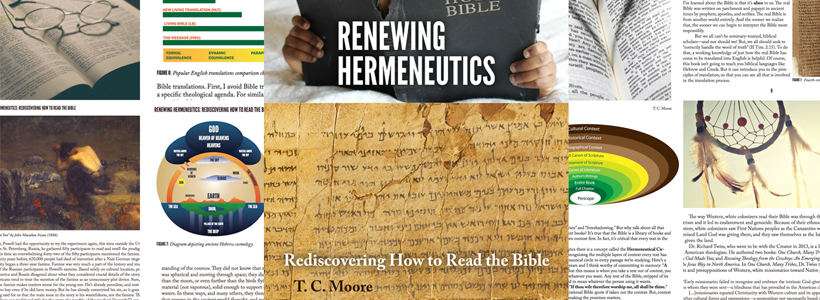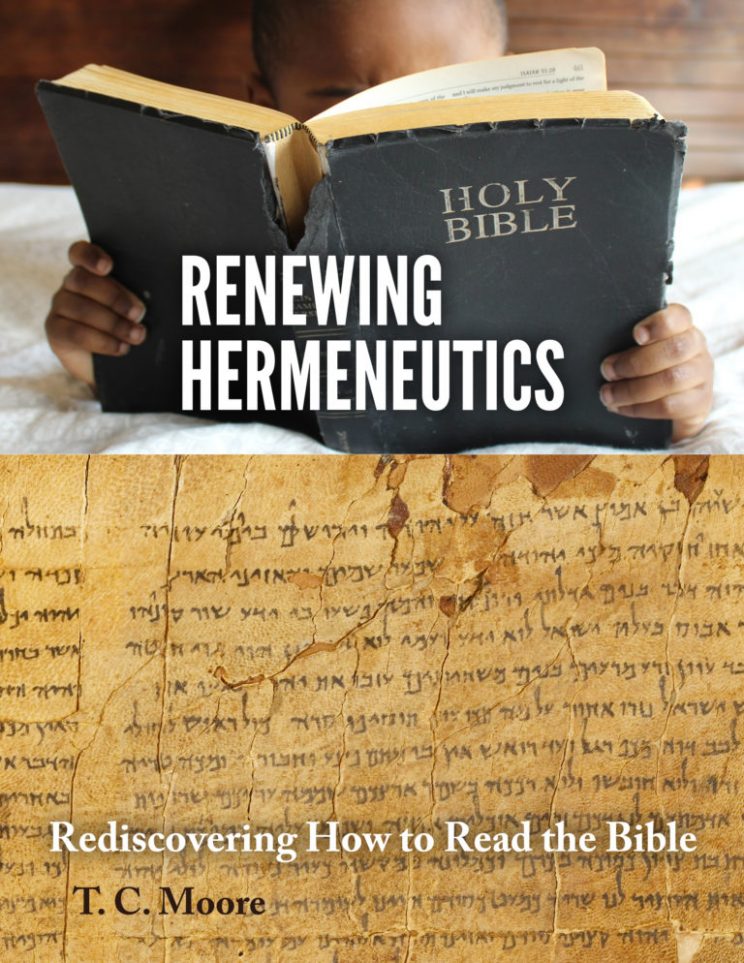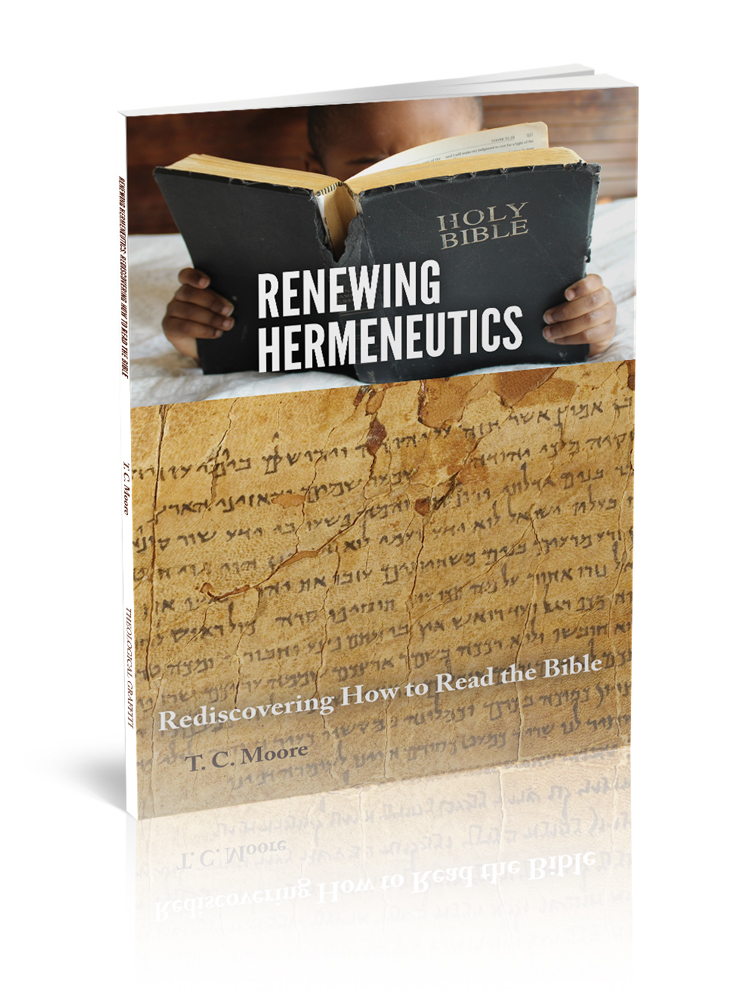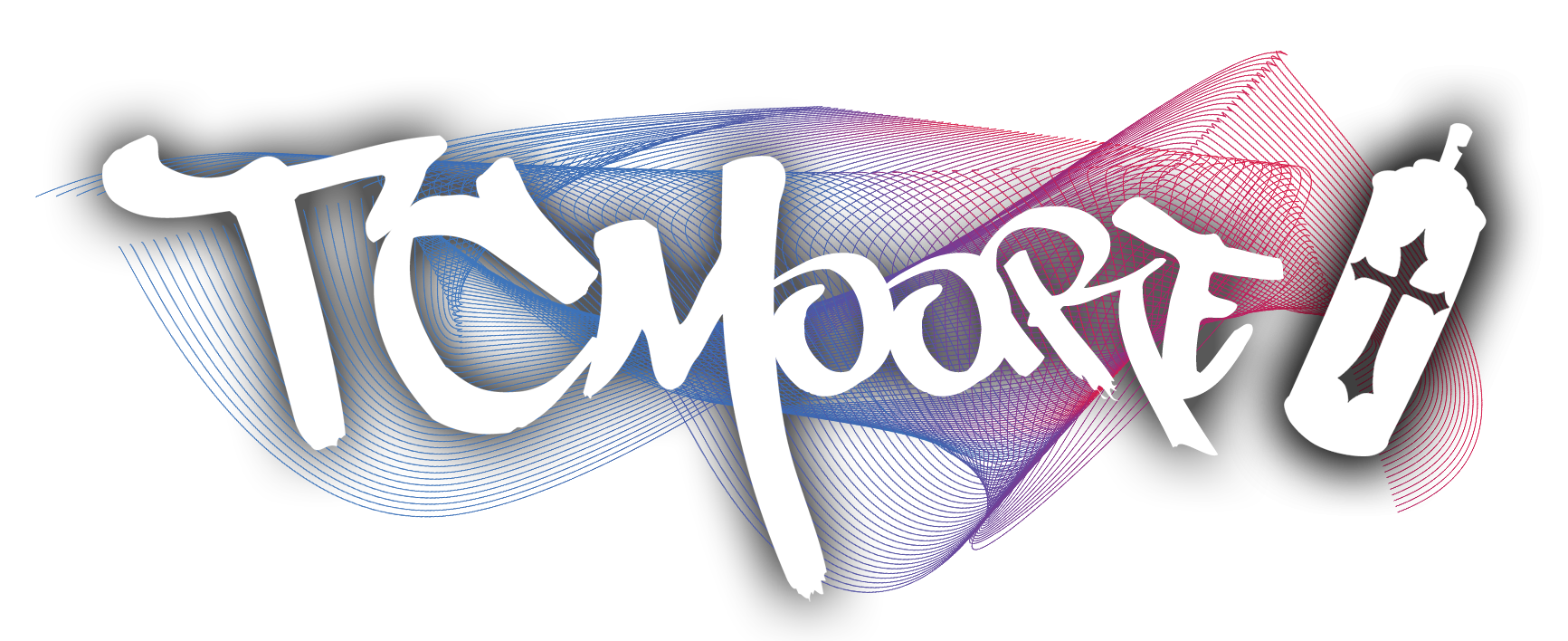
eBook

One of the most transformative moments in my understanding of biblical interpretation was when I realized how much of my own junk I bring to it. That wasn't a welcome realization at all. I fought it. I wanted to believe that I'm a blank slate and that everything I believe comes directly, unfiltered from the Bible. But I was fooling myself. I had to accept that I've formed many conclusions before I ever open the Bible to read it, and that I can't help reading the Bible from my limited perspective. I'm so grateful to the pastors and teachers who helped me come to realizations like this.
That's why I wrote this eBook. I wanted to share three of the most important lessons I've learned about interpreting the Bible—lessons I wish I'd learned sooner. And I wanted to introduce readers to some of the pastors and teachers from whom I've learned the most.
The Bible is Alien to Us
Part One is about the context of the Bible. Until and unless we come to terms with just how cross-cultural reading the Bible truly is, we will misread it. The ancient Near East might as well be another planet. It's that different from our modern world. We aren't being honest if we try to dismiss or ignore the tribalism, slavery, patriarchy, etc. It's in there. But why?
And even the genres of literature, with their culturally-specific idioms, highly metaphorical language, and mythological elements, are altogether different from what modern people expect from the Bible. We want straightforward, propositional reporting—like we're reading the newspaper. But the Bible doesn't work that way. So, how are we supposed to make sense of it?
We Read the Bible Through Lenses
Part Two is where we examine ourselves as interpreters. What do we bring to the Bible when we read it? Each person interprets the Bible from their own location in history, culture, and bodily experience. This fundamentally affects how we will interpret the Bible. Does that mean we can never know what the Bible means? How can we see our own blindspots?
The Bible itself points to a way of interpreting the Bible that isn't individualistic. What would it look like to interpret the Bible with the whole Body of Christ, not just part of it?
The Bible is a Story that Points to Jesus + Love
Part Three might be the most radical lesson I've learned. Not only is the Bible one, unified story from Genesis to Revelation—the Bible is also a story with a surprise plot twist that causes readers to reinterpret everything that came before the big reveal. Jesus and his love is the shocking and paradigm-shifting twist that reframes the whole Bible. Only when we read the whole Bible in the light of Jesus—and particularly Jesus's Cross—will it all make sense? Have you ever felt like you had to choose between what you think the Bible says and what you know in your heart is the loving way of Jesus? Then this book is for you.
You can find Renewing
Hermeneutics: Rediscovering How to Read the Bible for
$2.99 at
Apple iBooks, in
Amazon eBooks, and at
Kobo.

Also Available in Paperback!
You can also order
Renewing Hermeneutics from
Amazon in paperback format.
Everyone who reads the Bible, interprets the Bible. So, the question is only whether we will interpret the Bible well, or poorly. To interpret the Bible well, we don’t all need to be seminary-trained biblical scholars. But, we do all need some help.
 One of the most transformative moments in my understanding of biblical interpretation was when I realized how much of my own junk I bring to it. That wasn't a welcome realization at all. I fought it. I wanted to believe that I'm a blank slate and that everything I believe comes directly, unfiltered from the Bible. But I was fooling myself. I had to accept that I've formed many conclusions before I ever open the Bible to read it, and that I can't help reading the Bible from my limited perspective. I'm so grateful to the pastors and teachers who helped me come to realizations like this.
That's why I wrote this eBook. I wanted to share three of the most important lessons I've learned about interpreting the Bible—lessons I wish I'd learned sooner. And I wanted to introduce readers to some of the pastors and teachers from whom I've learned the most.
One of the most transformative moments in my understanding of biblical interpretation was when I realized how much of my own junk I bring to it. That wasn't a welcome realization at all. I fought it. I wanted to believe that I'm a blank slate and that everything I believe comes directly, unfiltered from the Bible. But I was fooling myself. I had to accept that I've formed many conclusions before I ever open the Bible to read it, and that I can't help reading the Bible from my limited perspective. I'm so grateful to the pastors and teachers who helped me come to realizations like this.
That's why I wrote this eBook. I wanted to share three of the most important lessons I've learned about interpreting the Bible—lessons I wish I'd learned sooner. And I wanted to introduce readers to some of the pastors and teachers from whom I've learned the most.



